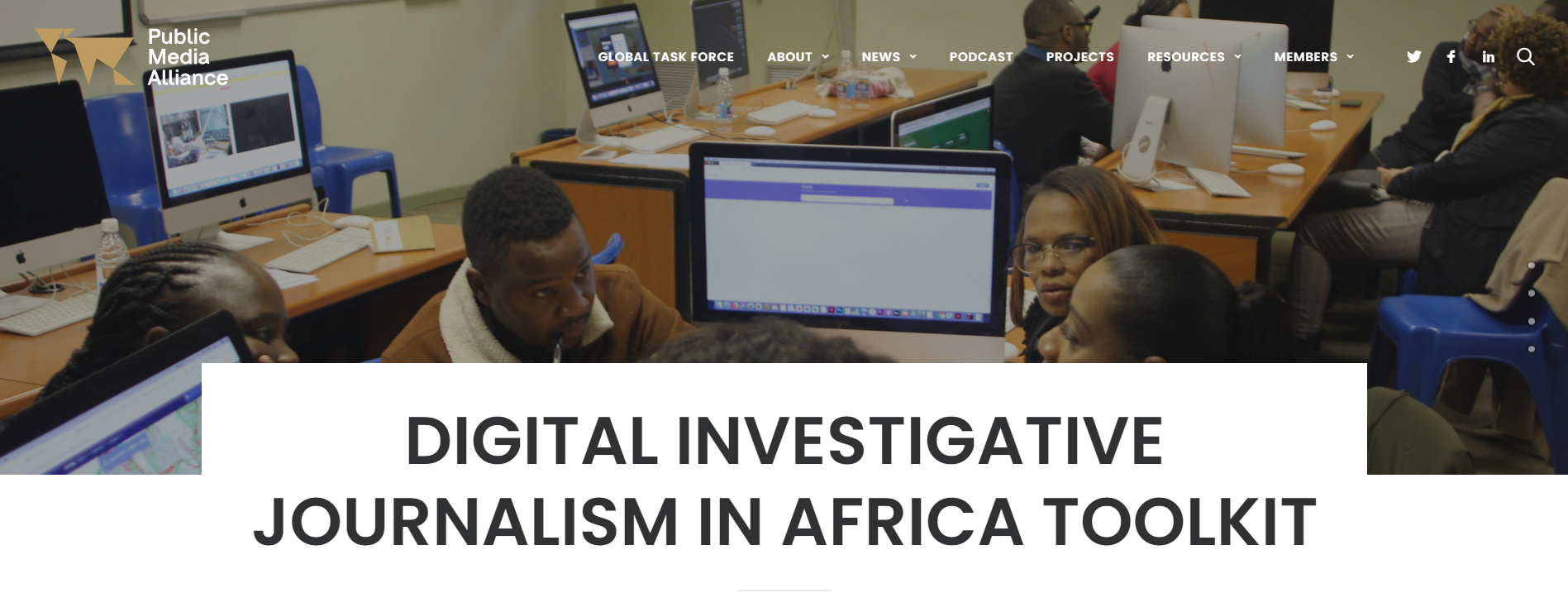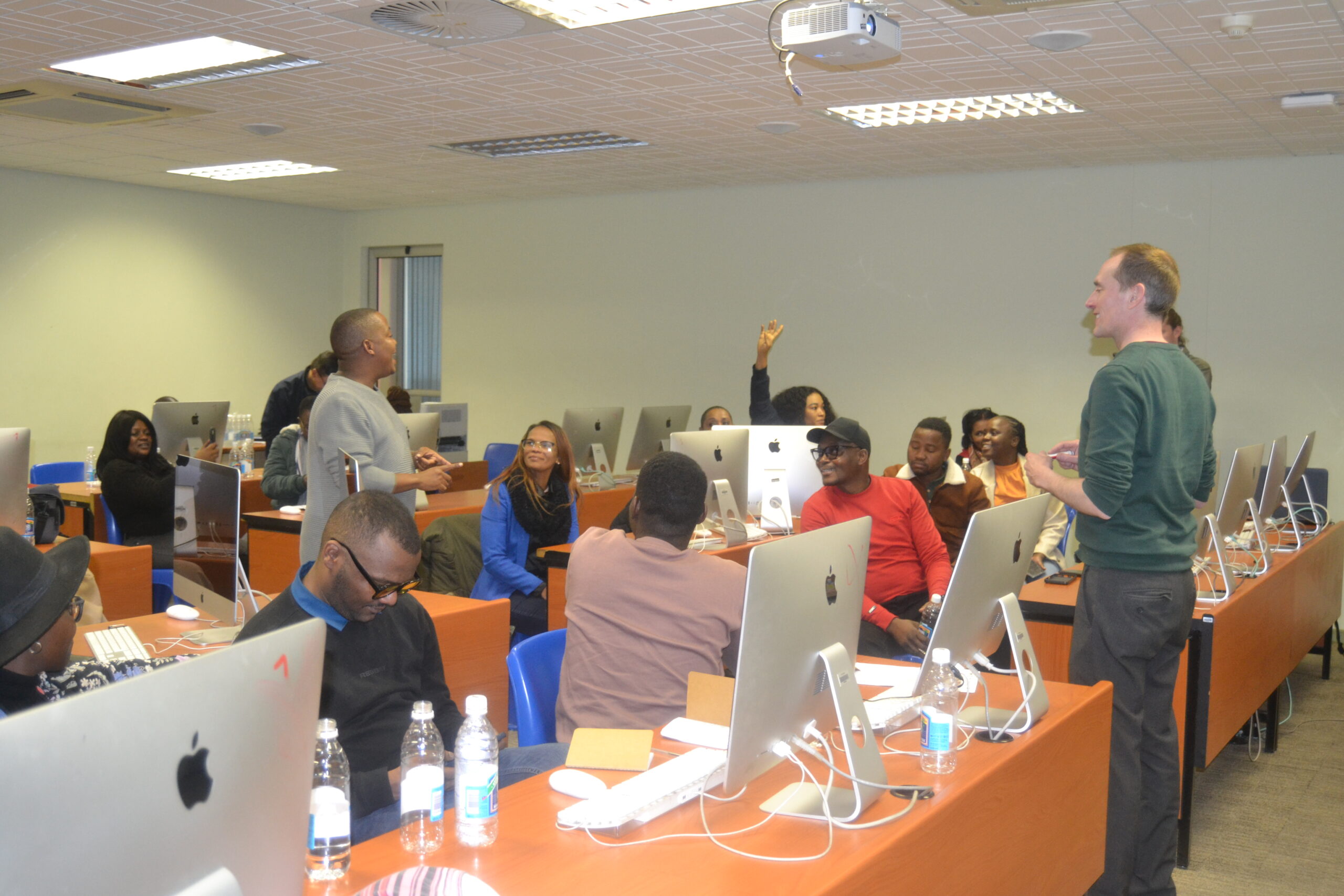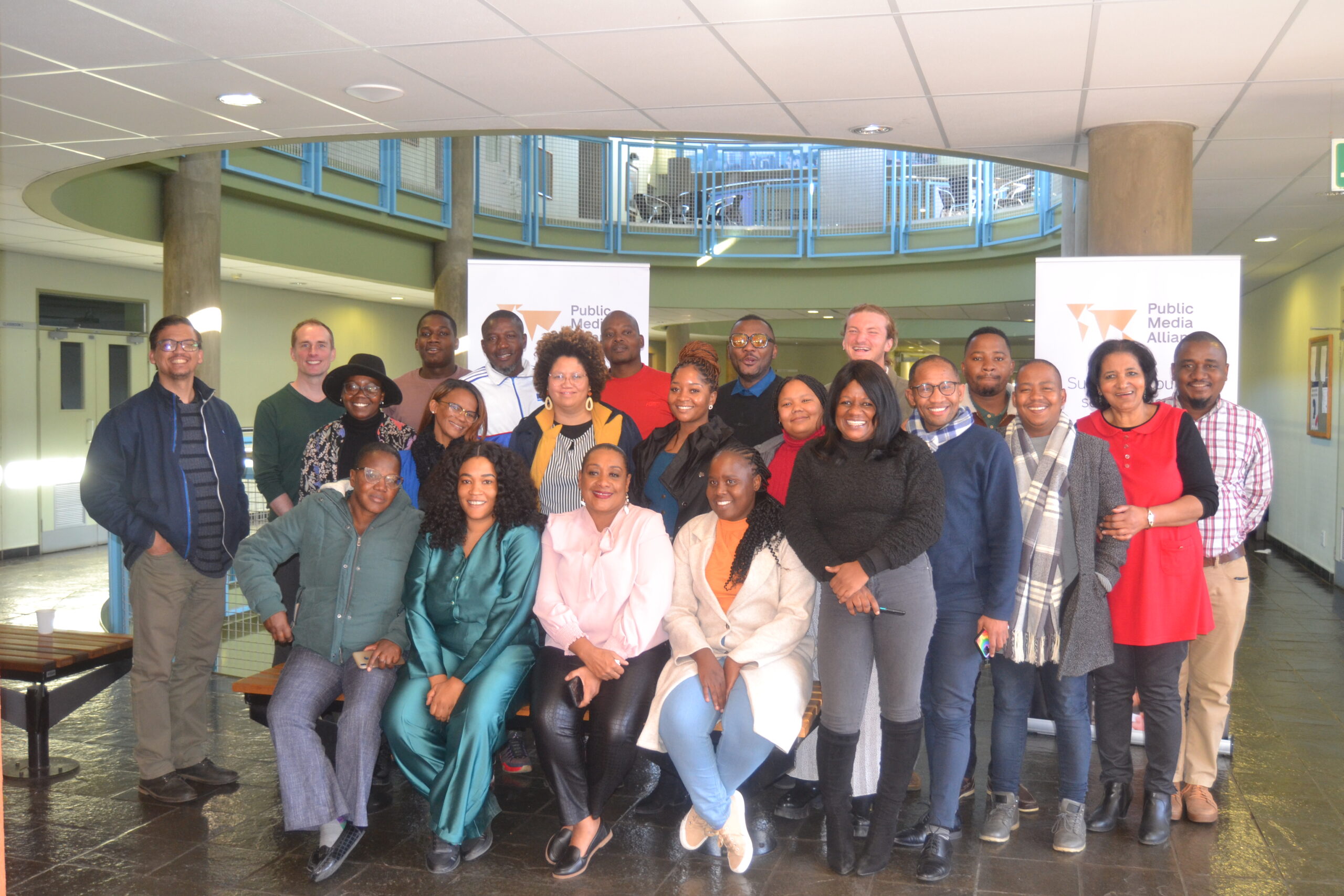Digital investigative journalism toolkit and checklist now available!
25th July 2023
The toolkit and checklist were launched last Friday at an event recapping the project and reflecting on the role of investigative journalism in the Sub-Saharan Africa media landscape.

The Public Media Alliance has launched a new and openly accessible digital investigative journalism toolkit and an online safety checklist to bolster investigative journalism in sub-Saharan Africa.
PMA – in collaboration with the Namibia University of Science and Technology (NUST) and fesmedia Africa – and with support from the Grace Wyndham Goldie (BBC) Trust Fund, successfully concluded the digital investigative journalism project in Sub-Saharan Africa on 21 July 2023.
The launch followed a two-day workshop held in Windhoek, Namibia from 28-29 June 2023. The workshop brought together journalists from Botswana, Mozambique, Namibia, Nigeria, Seychelles and South Africa, where they learned techniques and skills for digital investigative journalism. The journalists also contributed to the development of the online safety checklist.
Recapping the project during the launch event, facilitator Emily-May Brown said collaboration was an essential aspect. She stressed the importance of PMA’s work with local partners, such as NUST and fesmedia Africa, and highlighted the need for future partnerships.
Meanwhile, project facilitator, Rob Freeman, lauded the workshop for being engaging and lively. “In my experience, it’s truly unusual to have so many people engaged for so long,” he said. He said the workshop ultimately was about “establishing and nurturing the contacts between journalists in neighbouring countries who are looking at the same issues … So, you’re not a journalist looking at climate issues in Seychelles on your own, but you’re a journalist looking at climate issues with journalists […] across the Southern African region,” Mr Freeman said.

“The stakes are higher now than ever”
In his keynote speech, the Director of Media Monitoring Africa (MMA), William Bird, said that the digital age has fundamentally changed the media landscape. “Now, anyone with a handheld device has the same access and potential to share information access the global at a similar level to the biggest media house, so this barrier has been broken down.” As a result, journalism has been “forced to reimagine its role and function to society”, with journalists at the forefront of sifting through countless amounts of information on the internet to help ordinary members of the public understand major issues, such as public health, climate issues, and scientific work. The work journalists do in the digital age, he said, “is essential to ensuring we have critical information to make decisions. If people can’t make decisions, we can’t have a democratic state.”

For investigative journalists, he said, there is the added depth of having to uncover. “They have to look in dark corners, they have to make links, and they have to hold power to account – whether it’s public or private.” And while the core rule of investigative journalism has not changed, the stakes are higher now than ever, Mr Bird stressed, with investigative journalists facing unprecedented threats while having to expand their scope. For instance, “investigative journalists are looking beyond borders” since some of the most powerful entities “do not have borders; they instead work across nations”.
Among the threats to journalists Mr. Bird identified were:
- The powers that be have increased resources to attack journalists. “Those who have something to hide have the same platforms to divert and divide,” Mr Bird said. “The risks are higher, and the fewer investigative journalists there are it becomes easier to attack them, such as with SLAPPs and strategic PR campaigns that diminish and discredit investigative journalists. [Attackers] can do it from the comfort of their own mansions where they can send forth an army of bots where they can go and attack you and make your life extremely uncomfortable.”
- The required investigative tools are different. Mr Bird noted that investigative journalists are now in need of additional skills to produce work, such as digital security and computer skills. “And with the rise of AI and generative AI, we’re rapidly approaching a place where it’s harder to distinguish [what’s real] and an investigative journalist has this added challenge to spot disinformation and misinformation and act against it.”
- Increased demand. Mr Bird said that investigative journalists’ work are subjected to greater scrutiny now more than ever but they must, all the while, continue to help their audiences by providing resources, curating content, and supporting audiences with the methodology that explain the basis of their investigations. “This requires time, energy, and a whole lot of other skills.”
“Investigative journalism matters now more than ever before, not just for holding power to account but…because globally, democracy, rationality, evidence and truth are under attack.” – Mr. William Bird, Director of Media Montoring Africa
Meanwhile, speaking specifically on public service media in the region, Mr Bird Noted that politicians are undermining public interest media and public media. But public media organisations, he said, are increasingly important to the media landscape. “The challenge is for public media to have investigative journalism, and there you see the real clash because you begin to see the uncomfortable relationship between the state and the public broadcaster.” Nonetheless, he emphasised that public media organisations must be independent. “We need them to have investigative journalism units, we need them to be properly resourced…and there needs to be strengthened independence of public media,” he said. “Where you have stronger independent media, you’ll have stronger, more well-resourced investigative journalism. Public media is necessary for supporting investigative journalism.”
Now available
At the end of the event, the toolkit and checklist were launched by PMA’s Editorial Manager, Harry Lock. Guy Porter – a key developer of the toolkit – explained that, in the digital age, a toolkit helps news practitioners to stay organised and consistent in how they engage with their trusted sources for tools and techniques. “Ultimately, I hope that this toolkit is the foundation for everyone to build their own toolkit. The rate of change is great – the type of tools, the resources, the commitment – but the toolkit is a fundamental aspect of investigations in the digital age,” Mr. Porter said.

The toolkit was developed chronologically, beginning with how journalists can develop an investigative story – from selecting story ideas, to organising their investigations, and finally bringing it all together.
Both resources are now available on PMA’s website! You can access the toolkit here and the checklist here.
Related Posts
22nd June 2023
Investigative journalism workshop “happening at just the right time”
An interview with Emily-May Brown on…

